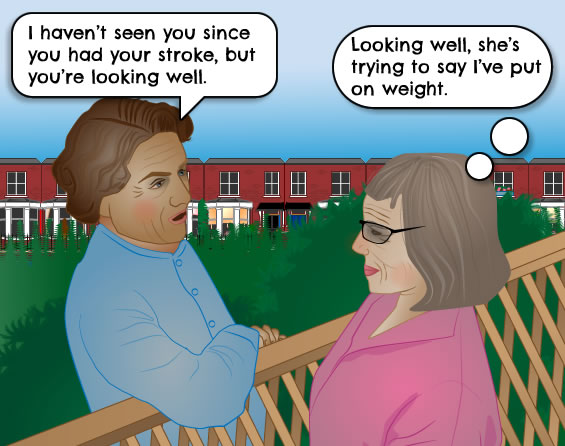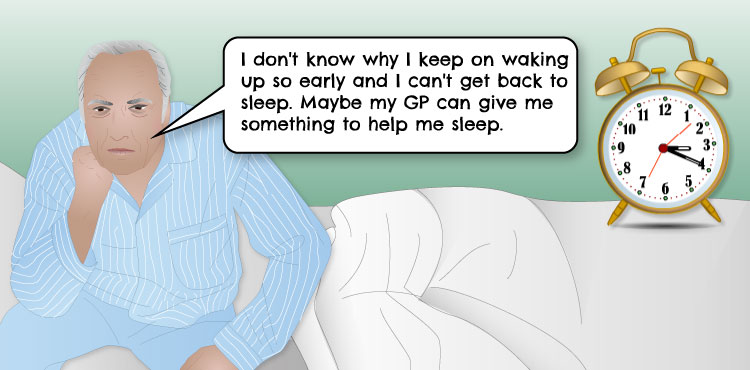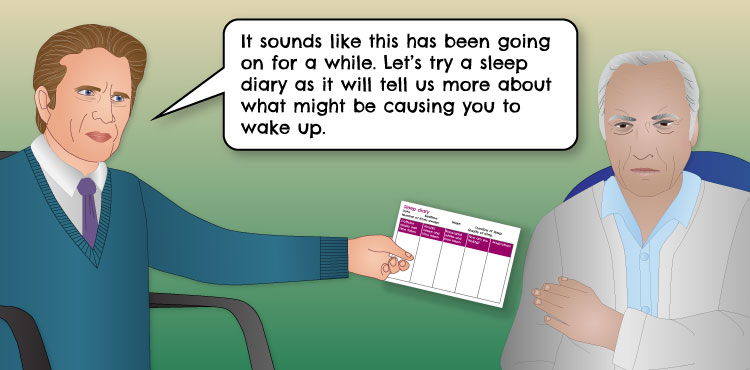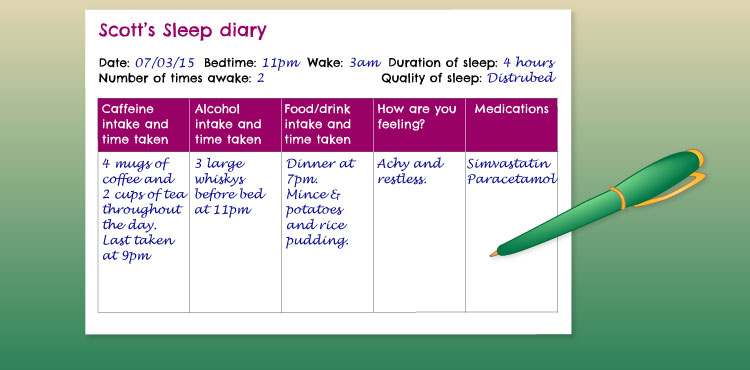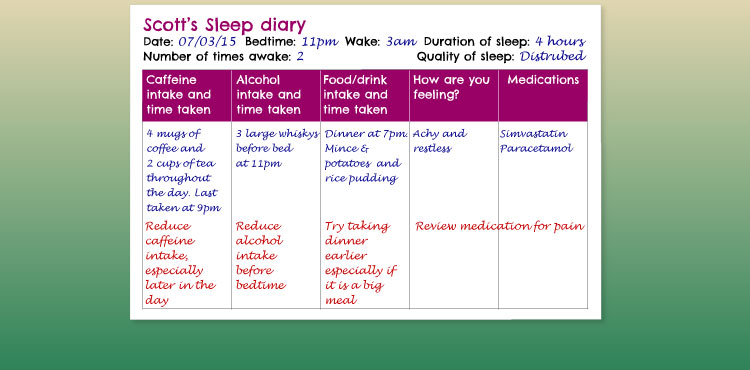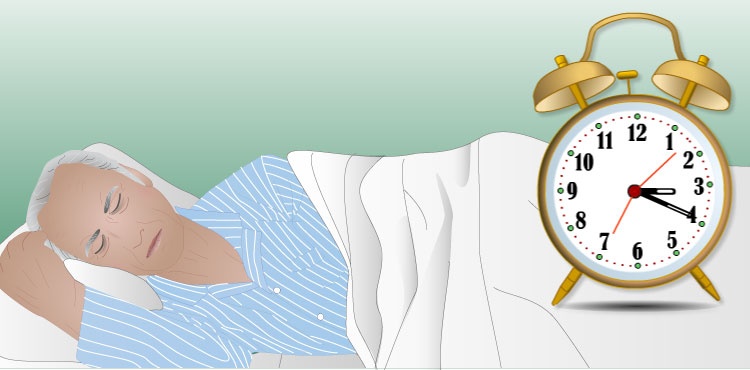I am feeling too low to get out and about. I had to work out what was really stopping me. Was I depressed or was I just tired? I spoke to my GP about this. I find that getting out really helps lift my mood. I feel a lot better now.
What if I get stuck? I was worried that I might get myself into a situation and get stuck, 2 streets from home. Common sense helps. I keep an ete on the weather, don’t go out if it is too dark, wear the right shoes and always take my mobile phone with me
I need to pay more attention to things. My stroke didn’t affect my eyesight, but I do make an effort to pay more attention to things as I am not so quick on my feet, especially when I am crossing a road. I had a support worker who came out with me for a while to get used to this. I had to build up my confidence, but it was worth it.
What if over do it? As I started to go out more by myself I would over do it the odd time. I learned to pace myself by landmarks. I now measure everything out in the distance between lampposts! I used to be able to do one and take a rest. I can now to 2 at a time. Sometimes I can walk into town and get the bus back so I am not walking both ways, especially if I am carrying bags.
I am not confident around other people. I was worried about what other people thought about me and also a bit nervous in crowds, because I was not as steady on my feet as I was before. The first few times I went out, my son came with me and we did not go far or to busy places. This helped my confidence.



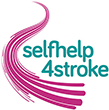
 I woke up today and I just feel sad. I just can’t face things today. I am tired and this makes me irritable. I feel I am good for nothing so I am just going to stay in bed.
I woke up today and I just feel sad. I just can’t face things today. I am tired and this makes me irritable. I feel I am good for nothing so I am just going to stay in bed.  I woke up today and I’m feeling okay. I’m not ready to tackle everything but I am getting there. I will get up, get ready and see what I can do today.
I woke up today and I’m feeling okay. I’m not ready to tackle everything but I am getting there. I will get up, get ready and see what I can do today.  I woke up today and I feel better. I feel positive and this makes me more motivated. I want to do more today and perhaps get out and about. I can do this!
I woke up today and I feel better. I feel positive and this makes me more motivated. I want to do more today and perhaps get out and about. I can do this!